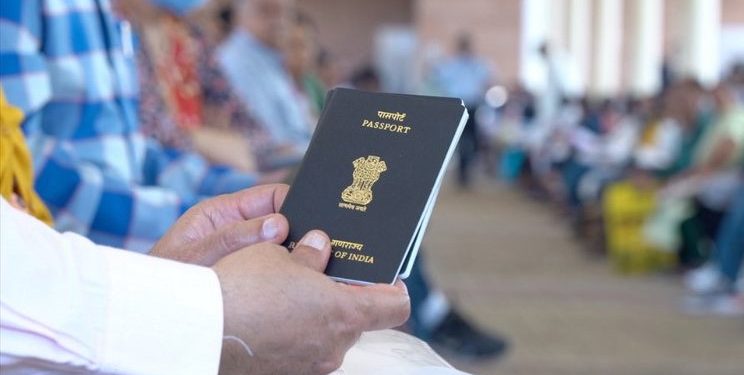Retirement in India as an NRI: A Journey of Reconnection, Contribution, and Fulfillment
Retirement is a journey that often leads us back to our roots, and for many Non-Resident Indians (NRIs), this journey leads them to contemplate retiring in the land they once called home. Returning to India as an NRI retiree is more than just a change in location; it’s a chance to reconnect with your cultural heritage, your family, and the diverse, vibrant tapestry that is India. However, like any significant life decision, retiring in India requires careful consideration and planning.
Here, we’ll delve into the essential factors to consider, the heartwarming stories of NRIs who’ve embarked on this journey, and the invaluable role NRIs play in India after retirement.
1. Legal Status and Visa
For NRIs, the first step is addressing your legal status in India. If you hold Indian citizenship, returning is relatively straightforward. However, for those with foreign citizenship, a suitable visa is required. The “X (Entry) Visa” is designed for NRIs looking to retire in India, allowing them to stay for extended periods without employment.
Example: Meet Sarah, a successful NRI who decided to retire in India after living in the United States for decades. Despite holding U.S. citizenship, she obtained an “X Visa” and made India her retirement destination.
2. Financial Planning
Financial planning is a critical aspect of retirement. If you are thinking about Retirement in India then NRIs need to assess their financial resources, including pensions, savings, and investments. It’s vital to consider the cost of living, healthcare expenses, and inflation. While India is known for its cost-effective lifestyle, it’s advisable to consult a financial advisor to create a sustainable retirement plan.
Example: Raj, a retired NRI, diligently planned his finances before returning to India. His savings, investments, and a well-structured financial plan ensure a comfortable and worry-free retirement.
3. Healthcare Infrastructure
India has made significant advancements in healthcare infrastructure, offering world-class medical facilities. However, healthcare costs can vary based on location and quality of care. Securing health insurance is a wise choice, ensuring access to quality medical services.
Example: Suresh, an NRI retiree, faced a health issue upon his return to India. With a robust health insurance plan, he received prompt and excellent medical care, underscoring the importance of healthcare preparedness.
4. Property and Housing
Choosing the right place to live during retirement is a vital decision. Many NRIs opt to purchase property in India. While the real estate market is diverse, it’s essential to be aware of local regulations, property taxes, and legal aspects of real estate transactions.
Example: Priya, a retired NRI, decided to invest in property in her hometown. Her well-researched real estate investment not only secured her residence but also provided a sense of belonging.
5. Cultural and Social Adaptation
Returning to India after years abroad involves cultural and social adaptation. Be prepared for differences in lifestyle, customs, and social dynamics. Connecting with local communities and expat groups can ease the transition.
Example: Rahul and Meera, NRI retirees, chose to engage with local cultural and social groups, which not only helped them adapt but also enriched their retirement experience.
6. Tax Implications
Understanding the tax implications of retiring in India is crucial. India has Double Taxation Avoidance Agreements with many countries, but it’s advisable to consult a tax professional to optimize your tax situation.
Example: Anu, a retired NRI, sought expert tax advice to ensure her income and assets were appropriately managed, minimizing her tax burden.
7. Family and Social Networks
One of the most significant draws of retiring in India is reuniting with family and friends. Your support network will significantly impact your well-being during retirement.
Example: The joy of reuniting with family and childhood friends after decades abroad is a heartwarming experience. Reconnecting with loved ones adds immeasurable value to the retirement journey.
8. Legal and Estate Planning
Ensuring your legal affairs and estate planning are in order is vital. This includes drafting a will, considering inheritance laws in India, and establishing power of attorney if necessary.
Example: Arjun, a retired NRI, took the time to legally organize his estate, ensuring a smooth transition for his heirs in case of unforeseen circumstances.
9. Lifestyle and Hobbies
Retirement is not just about financial planning; it’s about pursuing interests and passions. India offers a diverse range of activities, from cultural experiences to outdoor adventures. Consider what kind of lifestyle you envision and how India can support those aspirations.
Example: Swati, a retired NRI, found immense joy in pursuing her lifelong passion for classical music in India. Her retirement became a celebration of her cultural roots.
10. Regular Visits
Before making the final decision, consider making regular visits to India to get a real feel for what your retirement life might be like. This can help you adjust to the culture and lifestyle.
Example: Ravi, an NRI planning retirement, made several pre-retirement visits to India. These visits allowed him to gradually adapt and find a location that truly felt like home.
The Role of NRIs After Retirement in India
NRIs returning to India after retirement bring not only their wealth but also a wealth of experience, knowledge, and a global perspective. They often contribute to the local community, participate in charitable endeavors, and mentor the younger generation. Many NRI retirees actively engage in initiatives that aim to improve the quality of life for the less fortunate, thus creating a positive impact on society.
India recognizes the importance of NRIs and often extends various aids and support mechanisms, such as special schemes for retirees and non-residents, to make their transition and stay in India more comfortable.
Retiring in India as an NRI is not just a return to one’s roots; it’s a journey that enriches the individual and the nation. It’s an opportunity to create a fulfilling chapter, embracing the warmth and culture of your homeland while enjoying a well-deserved retirement. Careful planning and consideration are the keys to making this journey a joyous and satisfying one.
—
Retiring in India as an NRI offers a unique opportunity to embrace your cultural heritage, reconnect with loved ones, and contribute to the local community. With thorough planning and the right mindset, it can be a rewarding and fulfilling chapter in your life.











